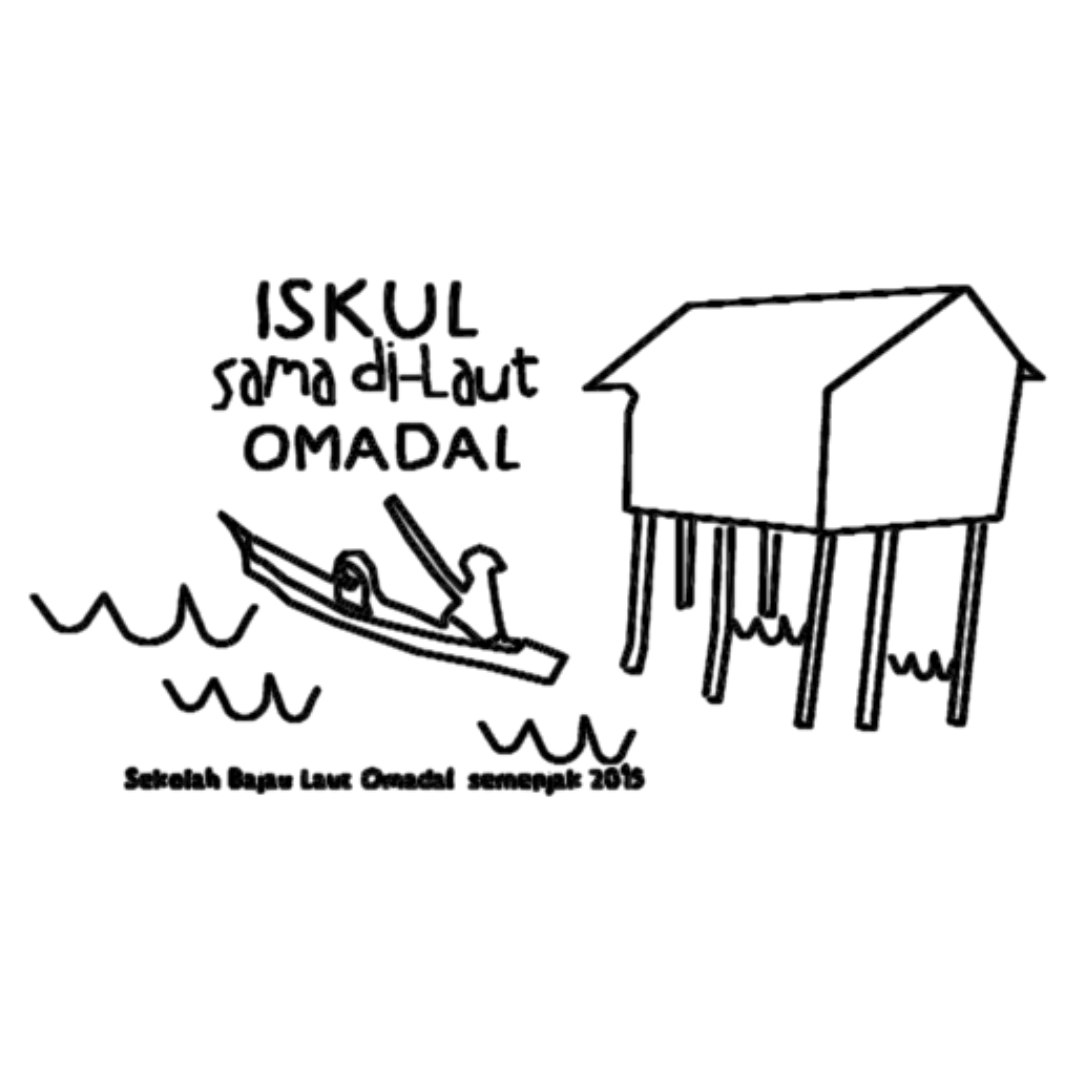The Marine Modules programme was set into motion to bring a sense of responsibility and awareness to the children. The Bajau Laut have long been a part of a culture that is very in tune with the ocean, have lived above it and made a living out of it for generations. The intent of these modules was to bring modern marine knowledge to these children, and integrate it with their cultural knowledge and practices.
A representative from Reef Check Malaysia, Adzmin, was involved in creating the modules for this programme, a process that occured concurrently with carrying it out. As a pilot programme, it was important to us to learn as we went and come up with modules that were practical, safe, and effective in aspects of long term education and impact on the children.
Training was conducted with Reef Check for Modulse 1 and 2 for our staff. Iskul’s 6 staff learned about the importance of the sea and its heart, the coral reef. The team also had a practical session of coral planting using the Coral Frame or Epoxy Coral method. We had also secured a grant o complete the marine module, to fund the Open Water sessions for our staff and students and also seed money for our students to initiate an action project to save the environment at the end of the marine module. For the content creation project, Iskul’s two mentors, Jefry and Rahmat, continued to guide the 10 youth participants through a total of 23 videos since January 2022. The productions are a mixture of tutorials (11), theatre/short film (6), performances (4) and vblog (2).

Our full time teacher, Cikgu Ayu, conducted the first Marine Modules with the student, as they began mapping the sea and marine life in Omadal, learning about the seas and the water life cycles.
This Marine Stewardship Module has evolved into a “Pejuang Laut” module, where at the end of the module, students will undertake a project of their interest on ways to protect the sea in Omadal.
Since then, our students continue to learn about the importance of the sea and learn about seas surrounding Omadal and all the seas in the world from Module 1. After that they also learn about the coral reefs and why it is critical to the sea and their sea produce.
In between the time, students have sea exploration to discover the marine lives in their sea and learn to map them. Besides this, they also learn about the water cycle so they could relate how the raining phenomena is related to their daily life as they harvest the rainwater for use.
We secured a grant from NDI to continue to engage ReefCheck to complete the Marine Module and to pay for the costs of Open Water scuba-diving certifications for our staff and students as well as for the student initiated action project at the end of the module.
four Iskul teachers, namely Teacher Ayu, Teacher Rahmat, Teacher Bilkuin, and Khairul attended an Open Water diving course. The course, conducted over three days, comprised one day of theoretical instruction and two days of practical training in the sea. The training was facilitated by two certified instructors from PADI (Professional Association of Diving Instructors.)
On 15th July 2023, the theoretical class was conducted at Iskul, Pulau Omadal, Semporna, Sabah. During this session, participants were required to complete the PADI liability release form, followed by watching a video divided into five sections covering essential aspects of diving.
While watching the video, the PADI instructors assessed the suitability of Pulau Omadal for diving activities. However, due to several risks identified – such as the lack of designated diving areas, absence of prior diving activities in Pulau Omadal, a high volume of boat traffic in the area, and the instructors’ unfamiliarity with the sea conditions, they decided to conduct the diving activities at Pulau Mabul instead. Participants would stay at one of the accommodations on Pulau Mabul for two days and one night to complete the course.
On 16th July 2023, the participants travelled to Pulau Mabul via boat, accompanied by the PADI instructors and their assistant, Adib. The practical training commenced with a detailed introduction to diving equipment, including the cylinder tank, BCD, regulator, weight belt, mask, and fins. Participants were instructed to properly inspect, assemble, and wear the equipment. Subsequently, they were guided to descend into the water and practise various skills, such as seated back roll entry, breathing underwater using the regulator, using hand signals, clearing and recovering the regulator, getting water out of the mask, managing air supply, descending and equalising, swimming underwater, using alternate air sources, ascending, and conducting emergency procedures.
On 17th July 2023, participants were briefed on the skills to be tested while underwater. These included preventing problems, managing surface problems for both responsive and unresponsive divers, handling underwater equipment-related issues, maintaining neutral buoyancy hovering, performing Controlled Emergency Swimming Ascent (CESA), and practising a 30-minute dive at Resort Smart area for nitrogen release, followed by a safety stop to facilitate ascent.
On the 26th to the 28th of July, 9 students in our highest class level underwent the same courses as our staff had, We are very proud of all the staff and students who passed the Open Water Diving course, and hope that this knowledge will be useful in the future.

